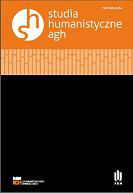EPISTEMOLOGIA W AṢṬASĀHASRIKĀPRAJÑĀPĀRAMITĀ I W FILOZOFII NAGARDŻUNY
EPISTEMOLOGY IN AṢṬASĀHASRIKĀPRAJÑĀPĀRAMITĀ AND IN NĀGĀRJUNA’S MIDDLE WAY
Author(s): Szymon BogaczSubject(s): History, Philosophy, Social Sciences, Epistemology, Sociology
Published by: Wydawnictwa AGH
Keywords: Indian epistemology; svabhāva; omniscience; Nāgārjuna; Aṣṭasāhasrikāprajñāpāramitā
Summary/Abstract: Nāgārjuna’s Middle Way (madhyamaka) doctrine met with the objection that it is a mere verbal attack (vitaṇḍā) against other philosophical positions. As one of the Madhyamaka critics pointed out: because Nāgārjuna does not hold own position, he is not able to justify his criticism of the essence (svabhāva). The article is an answer to the question whether, in the context of Indian philosophy, it is possible to know things devoid of essences. Theory of knowledge of this kind, i.e. the concept of omniscience (sarvajña) was presented in Aṣṭasāhasrikāprajñāpāramitā sutra. Associations between Nāgārjuna’s texts and the sutra suggest that omni- science could be a substrate for epistemological position of the Middle Way.
Journal: Studia Humanistyczne AGH
- Issue Year: 14/2015
- Issue No: 3
- Page Range: 7-16
- Page Count: 10
- Language: Polish

